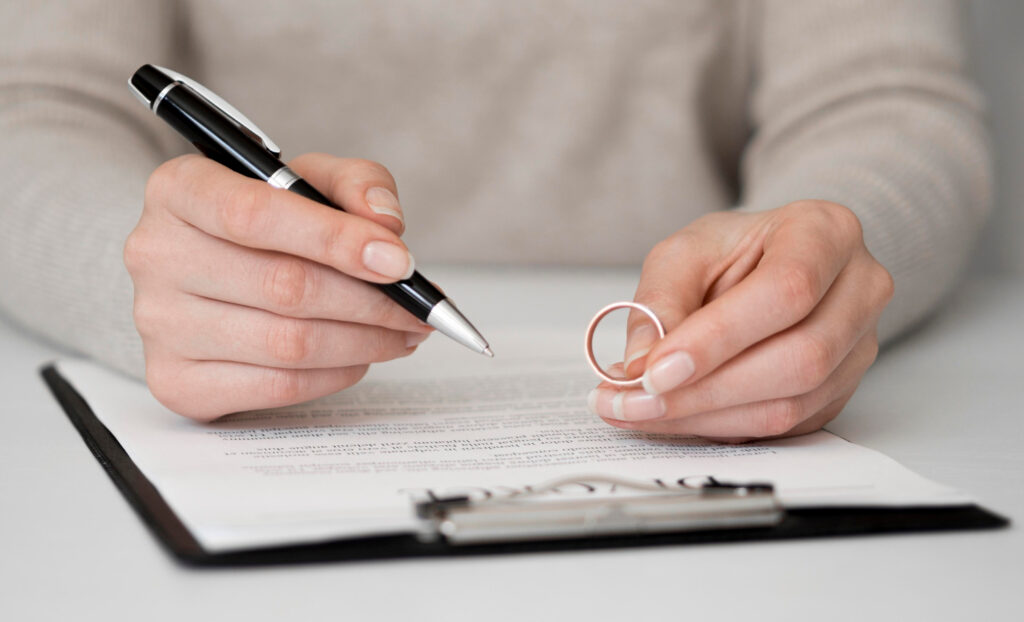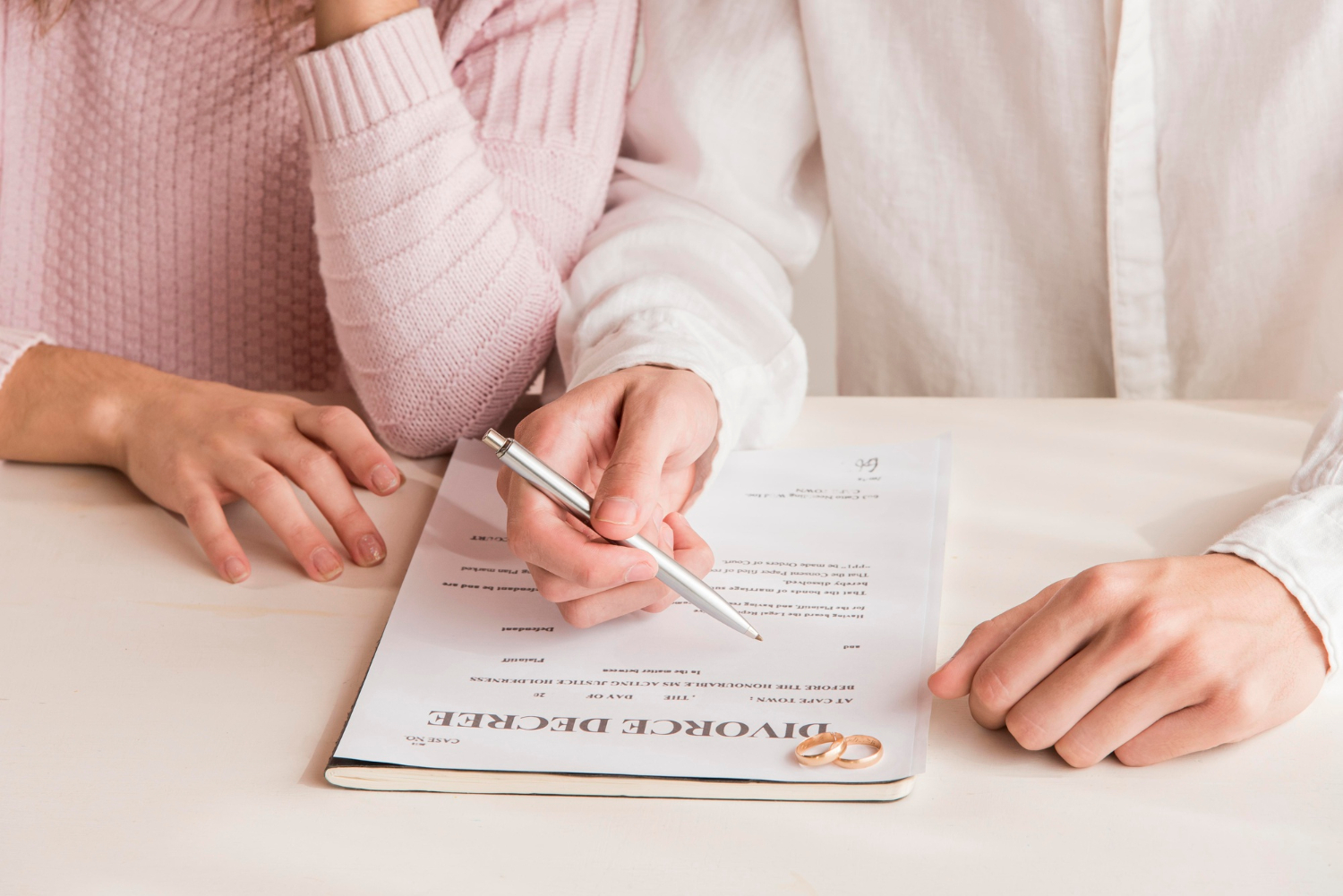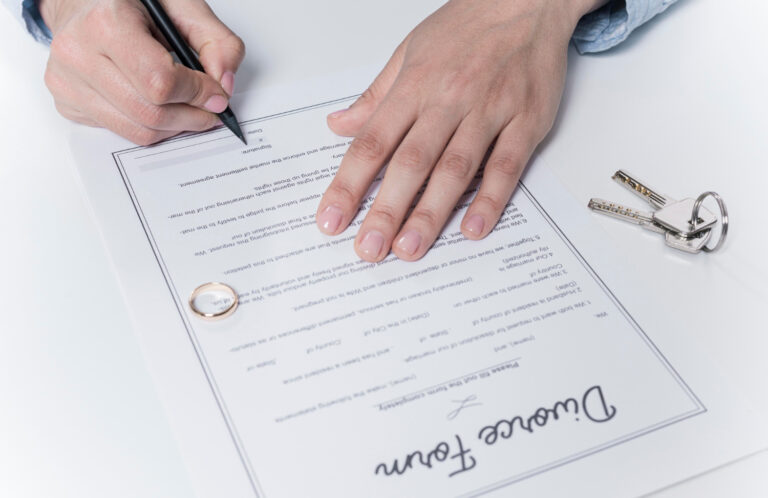Divorce Papers: Post-Serving Consequences
When you serve your spouse divorce papers, what happens next can be confusing and overwhelming. At LawOfficeOfBrianKelly, we have helped countless clients navigate this crucial phase.
In this article, we’ll break down the steps that follow serving divorce papers, so you know exactly what to expect. Let our experienced divorce lawyers guide you through each stage, ensuring a smoother transition during this challenging time.
Based on the information from Nolo.com, after you serve your spouse divorce papers, they have a set number of days, usually 30, to respond. If they do not respond, you may request a default judgment from the court. If they do respond, the divorce process continues with both parties possibly negotiating or going to court.
What To Expect After Serving Divorce Papers
Serving divorce papers often triggers a diverse spectrum of emotions, including sadness, anger, confusion, and even relief.
Going through a divorce can be tough, even if both partners agreed to it. You might feel sad, rejected, or like you’ve failed. The legal steps involved, like dealing with property, money, and child custody, can add to the stress.
After the divorce papers are served, your daily life and relationships might change. Friends and family might take sides or not know how to help. It’s good to find support from loved ones or a therapist.
By and largemoney-wise, you might need to adjust your living situation and spending. It’s important to plan how to manage your finances during and after the divorce. This could mean setting up a new budget, splitting assets, or even getting a job or working more hours.
Next Steps After Serving Divorce Papers
After serving divorce papers, it’s interesting to note that the next steps often include a mandatory waiting period during which the other party must formally respond.
Essentially speaking, after you get the divorce papers, you have a few options: you can agree to the divorce terms, contest them, or make your own claims. It’s important to communicate clearly and try to come to an agreement. If you can’t agree, you might have to go to mediation or court to settle things. Make sure to follow all the court’s rules and meet their deadlines.
In general, you’ll need to gather all important documents related to the divorce, like financial records, property deeds, and any messages between you and your spouse. Getting advice from a good lawyer can help you understand the legal process and protect your rights.
Also, take care of your emotional health. Talk to friends, family, or a therapist if you need support. The ultimate goal is to reach a fair agreement for both of you.
How Your Spouse May Respond to Divorce Papers
Upon receiving divorce papers, your spouse’s response can range widely based on their immediate emotional and mental state.
Come to think of it, they might feel shocked and devastated, causing them to act withdrawn or defensive. They could also feel angry or betrayed, leading to impulsive or aggressive reactions. Some spouses might take the news calmly and agree to cooperate, while others might deny what’s happening and refuse to take part in the process.
Good communication and understanding are really important during this tough time. Your spouse may need some time to process the news and accept the decision. In short, it’s very important to stay respectful and open to talking things through to make the legal process smoother. Getting help from a mediator or therapist can also make the conversation more constructive and help both sides reach a fair agreement.
Legal Processes Following Divorce Paper Service
The legal journey post-divorce service papers often unveils the complexities of asset division and custody battles.
In concise terms, the person who receives the divorce notice has a certain amount of time to reply or challenge it. If there are disagreements, the court might set up meetings to sort things out. Both people might need to give the court financial documents and other information. The court will look at issues like who gets custody of the kids, how to divide property, and if spousal support is needed. If both sides agree, this agreement will be written down in a divorce decree.
To put it briefly, if they can’t agree, there may be a trial. At the trial, both sides will present their evidence and reasons, and the judge will decide. After the decision, the court will issue a final divorce decree outlining the terms of the divorce. This decree is a legal order that both people must follow. If one person doesn’t follow it, the other can take legal action to enforce it. It’s important to have a lawyer during the divorce process to help protect your rights and guide you.

Managing Emotions Post-Divorce Paper Service
Did you know that specialized post-divorce paper services can significantly aid in managing the emotional complexities that arise after a separation?
Essentially it’s important to let yourself feel your emotions, like sadness, anger, or confusion. Talking to a therapist or counselor can help you understand and handle these feelings. Taking care of your body by eating well, exercising, and getting enough sleep is also very important.
To cut a long story short, being around supportive friends and family can give you comfort and understanding. Remember, healing from a divorce takes time, and it’s okay to grieve the end of your marriage. By looking after yourself and seeking help, you can manage the emotional difficulties of divorce and eventually find peace and acceptance.
Summing it All Up
Serving your spouse divorce papers is just the beginning of the legal process. After being served, your spouse will have a certain amount of time to respond.
What LawOfficeOfBrianKelly is reminding you to think about is, the next steps can vary depending on their response, leading to negotiations, court proceedings, and the dissolution of the marriage. It is important to seek legal advice to work through this complex and emotional path.







